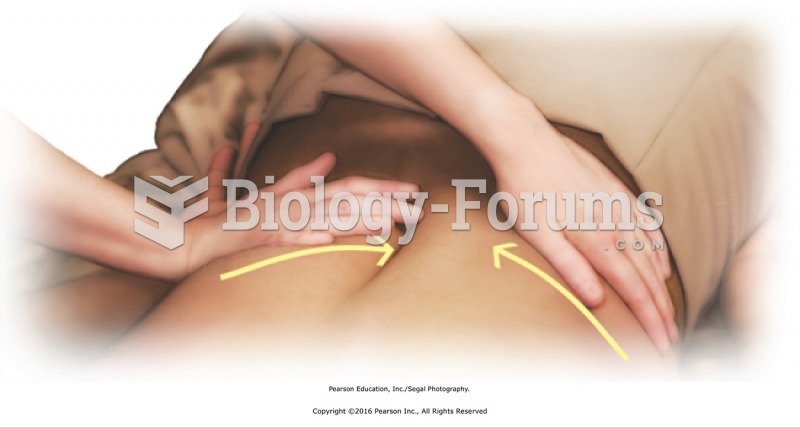This topic contains a solution. Click here to go to the answer
|
|
|
Did you know?
About 600,000 particles of skin are shed every hour by each human. If you live to age 70 years, you have shed 105 pounds of dead skin.
Did you know?
Bacteria have been found alive in a lake buried one half mile under ice in Antarctica.
Did you know?
Illicit drug use costs the United States approximately $181 billion every year.
Did you know?
The modern decimal position system was the invention of the Hindus (around 800 AD), involving the placing of numerals to indicate their value (units, tens, hundreds, and so on).
Did you know?
The tallest man ever known was Robert Wadlow, an American, who reached the height of 8 feet 11 inches. He died at age 26 years from an infection caused by the immense weight of his body (491 pounds) and the stress on his leg bones and muscles.
 USF Biologist Taegan McMahon conducts experiments on chlorothalonil at a research facility in East H
USF Biologist Taegan McMahon conducts experiments on chlorothalonil at a research facility in East H
 Two important changes occur in the upper airway in croup:The epiglottis swells, thereby occluding th
Two important changes occur in the upper airway in croup:The epiglottis swells, thereby occluding th
 Knead the upper trapezius with one or two hands. Lift, squeeze, and release the soft tissues in a ...
Knead the upper trapezius with one or two hands. Lift, squeeze, and release the soft tissues in a ...




